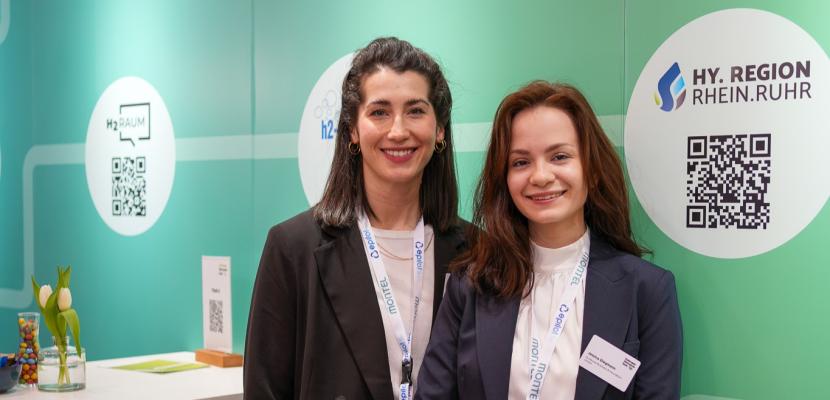
Driving Duisburg’s Green Transformation: The Sustainability and Hydrogen Hub at DBI

About this good practice
The Hydrogen and Sustainability Hub at DBI functions as a Cluster Manager, bringing together various stakeholders to drive climate-friendly initiatives. The Hub’s key responsibilities include:
• Facilitating collaboration among industrial stakeholders and with policy makers to advance sustainability projects.
• Organizing knowledge-sharing sessions and best practice exchanges, including Hy.Summit.Rhein.Ruhr.
• Aligning business strategies with sustainability goals to ensure long-term commitment.
• Supporting projects such as DU.zirkulär, which integrates circular economy principles into Duisburg’s urban and economic development.
As a central coordination unit, the Hub ensures that transformation efforts are effectively managed, knowledge is continuously exchanged, and stakeholders work together toward shared sustainability objectives.
Resources needed
The Hub operates with several managers, who provide technical expertise in sustainability and oversee project management. Funding sources include membership fees and public sources as well as EU and regional development programs.
Evidence of success
• Establishment of the Sustainability Hub as a central platform for managing hydrogen and circular economy initiatives.
• Strengthened collaboration between businesses, research institutions, and policymakers.
• Implementation and development of hydrogen and circular economy projects, including Hy.Summit.Rhein.Ruhr and DU.zirkulär, contributing to Duisburg’s sustainable development.
Potential for learning or transfer
Other post-industrial cities can learn from Duisburg’s approach by:
• Establishing a dedicated hub to coordinate sustainability initiatives.
• Utilizing cluster management strategies to foster innovation and economic transformation.
• Aligning environmental and business objectives to create sustainable industrial ecosystems.

